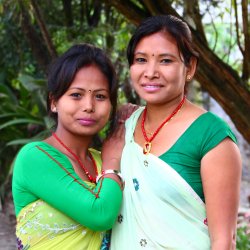In many developing communities around the globe, women spend a significant portion of their day gathering wood for cooking and walking hours to the nearest town to purchase kerosene for lighting. Because women are responsible for cooking and lighting in their households, they are disproportionately exposed to the toxic fumes from these fuels.
What if the people that energy poverty affects the most could become the leaders of the clean energy revolution?
What if women could gain back their productive hours, expand energy access in rural regions, and earn an income all at once?
Empower Generation is making this a reality by empowering women already serving as household energy managers to become solar energy entrepreneurs. GRID Alternatives and Empower Generation have partnered to implement this model in the village of Dhapsung as part of the Power Up Nepal project this fall. Read on to learn how Empower Generation is energizing Nepal’s rural communities by creating jobs, supporting women-led enterprises, and making the world a cleaner, brighter place.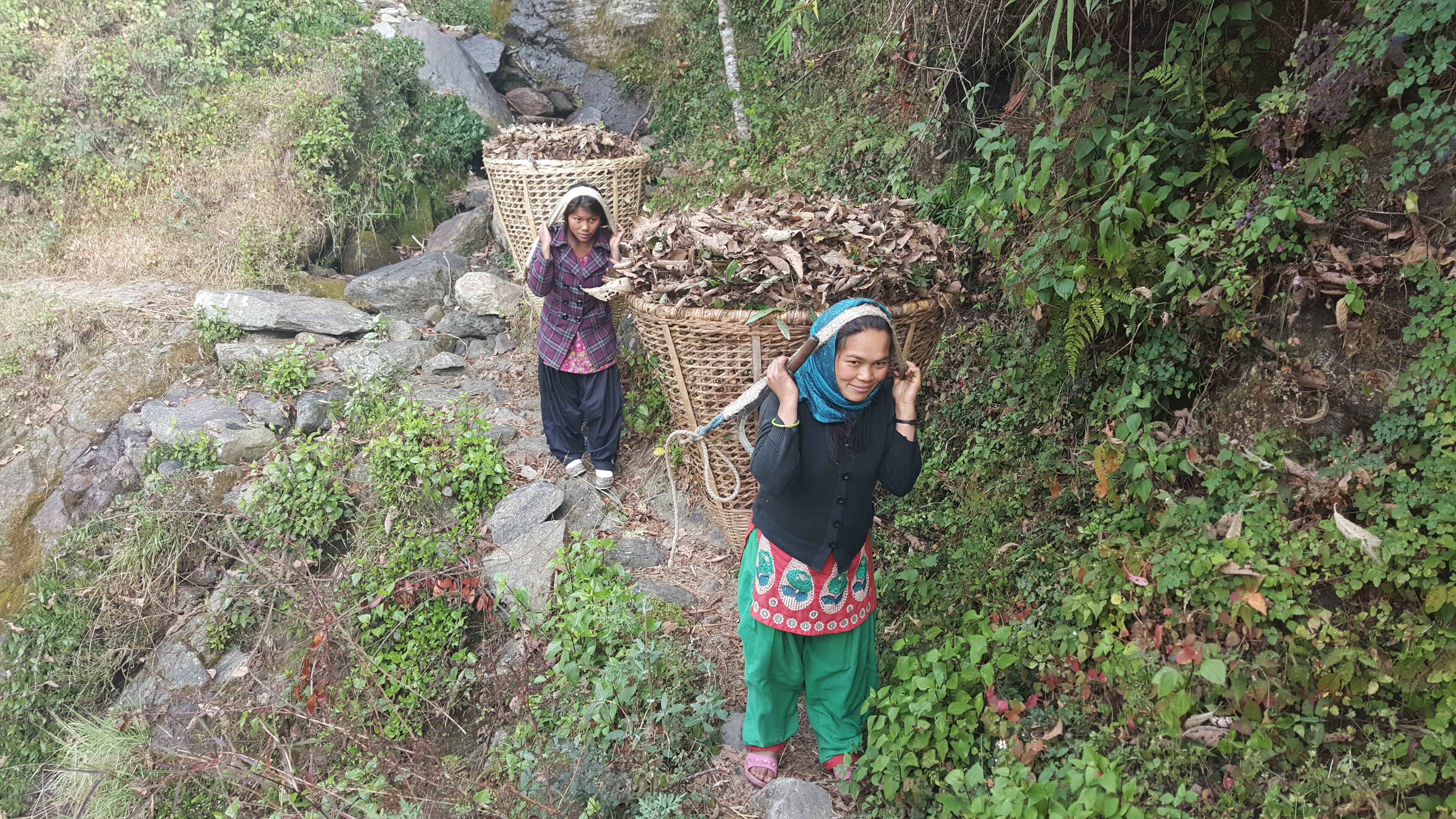
The Empower Generation Story:
Empower Generation grew from the combined passions of its co-founders, Anya Cherneff and Bennett Cohen. Anya was looking to offer sustainable employment to women otherwise vulnerable to human trafficking while Bennett was thinking about how to enable the widespread adoption of clean energy in developing countries. They experienced their “solar lightbulb moment” when they encountered Sita, an unemployed Nepali woman who had built up a thriving women’s microfinance organization in her rural community.
Sita dreamed of starting her own company that would employ at least 100 other women, but lamented that it would never be possible without access to power. In 2011, Empower Generation entered the energy landscape in Nepal, a country with a national GDP per capita of $700, where people spend up to 20% of their income on kerosene and candles just to see at night.
Empower Generation addresses the fundamental need of providing power to the people of Nepal, while shattering traditional views of what constitutes women’s work. With business skills training and support from Empower Generation, women like Sita in vulnerable communities start and run businesses that provide the critical service of energy access through sales of solar lanterns. Today, Empower Generation is proud to support 18 micro-enterprises owned by 20 women, who employ 190 village-level solar sales agents in their network.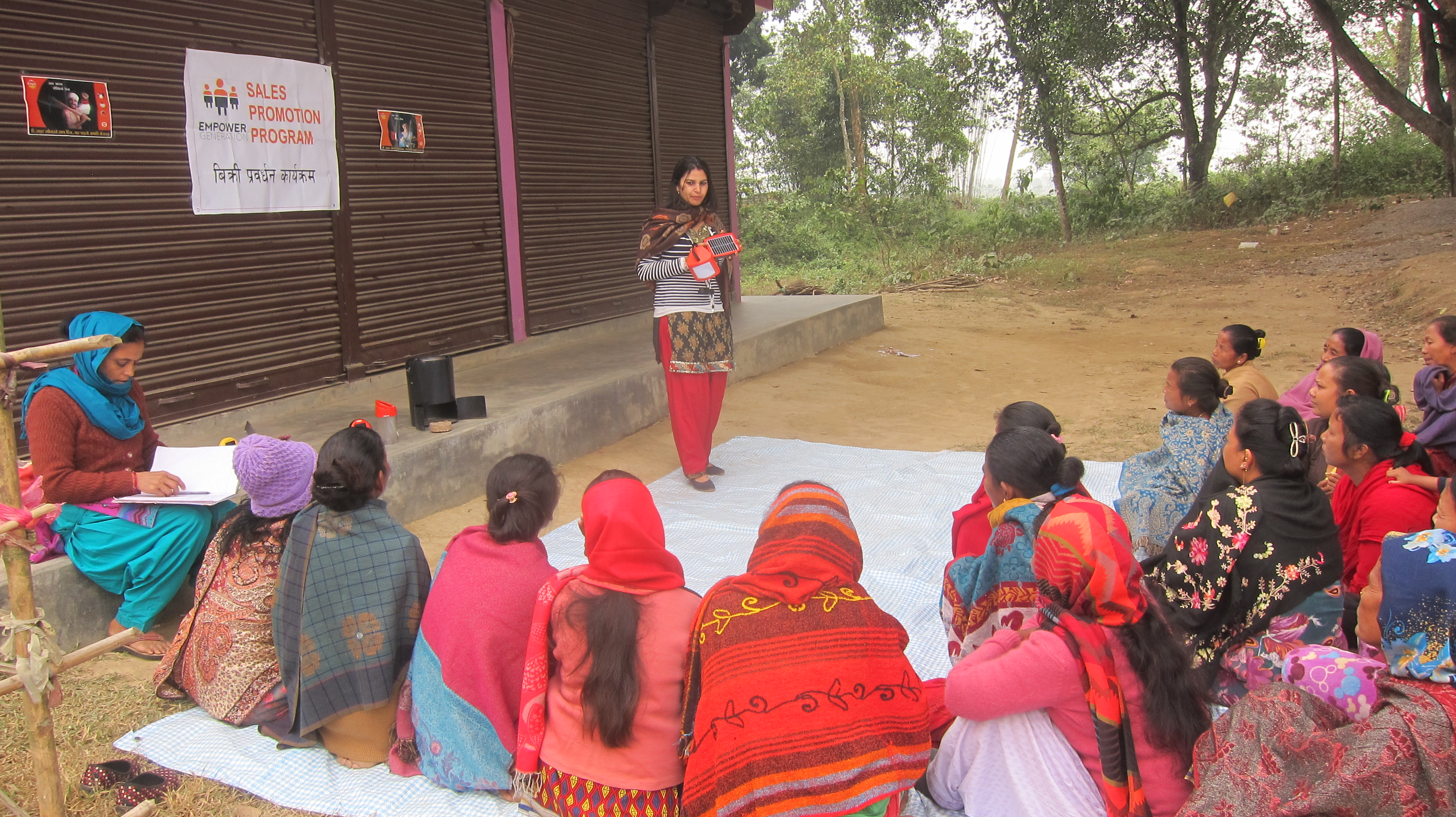
The Model:
At the entrepreneur level, Empower Generation provides training, access to capital, and brand marketing support to women who independently own solar sales businesses. Entrepreneurs purchase solar products from Empower Generation at discounted costs and manage a village-level sales force consisting of both male and female agents who earn commission on every product they sell.
In addition to a two-year revolving line of credit to get the business up and running, each micro-enterprise participates in a capacity program, where the entrepreneur receives training in assessing the market, writing a business plan, recruiting and monitoring a sales force, HR management, inventory management, and other skills to ensure a sustainable and profitable business. Entrepreneurs and sales agents visit local villages to hold sales promotion programs, where community members are invited to gather for a demo of household solar products. These informational sessions ensure that customers feel educated about the benefits of switching to clean energy and that they feel valued as consumers.
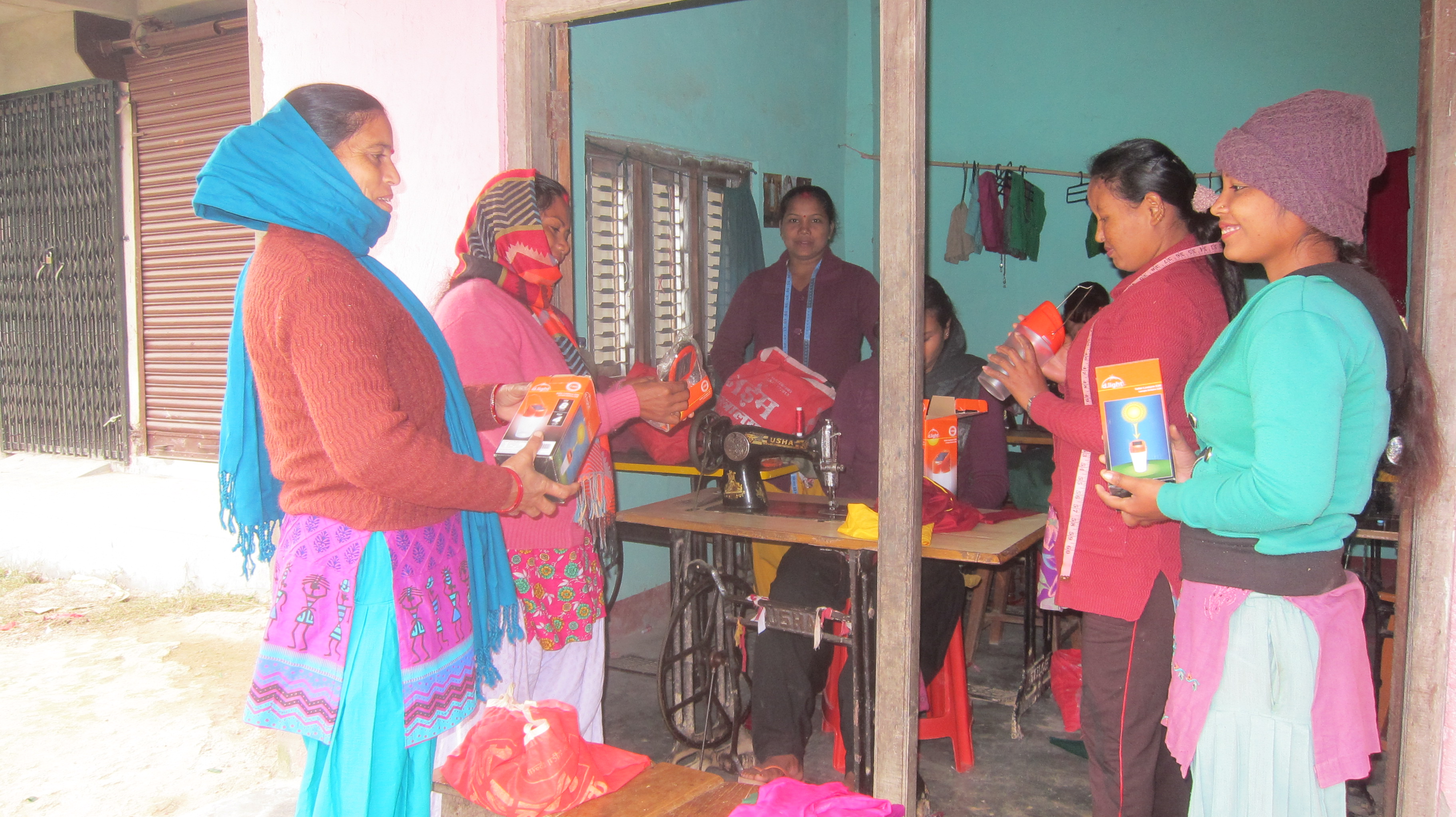 The Impact:
The Impact:
Empower Generation’s network of women-led solar enterprises has brought cleaner, safer light and power to 253,014 people, through 50,127 solar products, saving customers over $2,358,000 on household energy expenses, and displacing 9,773 tons of Co2.
Empower Generation leaves both sales agents and customers alike empowered by light. For Basanti, a solar entrepreneur in the Kailali District, empowerment comes in the form of education. Like most women in rural Nepali communities, Basanti was married at an early age and didn’t have the opportunity to continue her education after the 10th grade. 15 years later, she has bravely decided that now is the time to complete the education she started so long ago.
With the leadership skills, confidence, and financial independence she has cultivated from over two years as an Empower Generation entrepreneur, Basanti can now afford to study and take the final exam that will result in her secondary degree. As a solar entrepreneur, Basanti’s work influences learning outcomes for young girls just like her, who gain hours of study time through the daily use of solar lanterns. 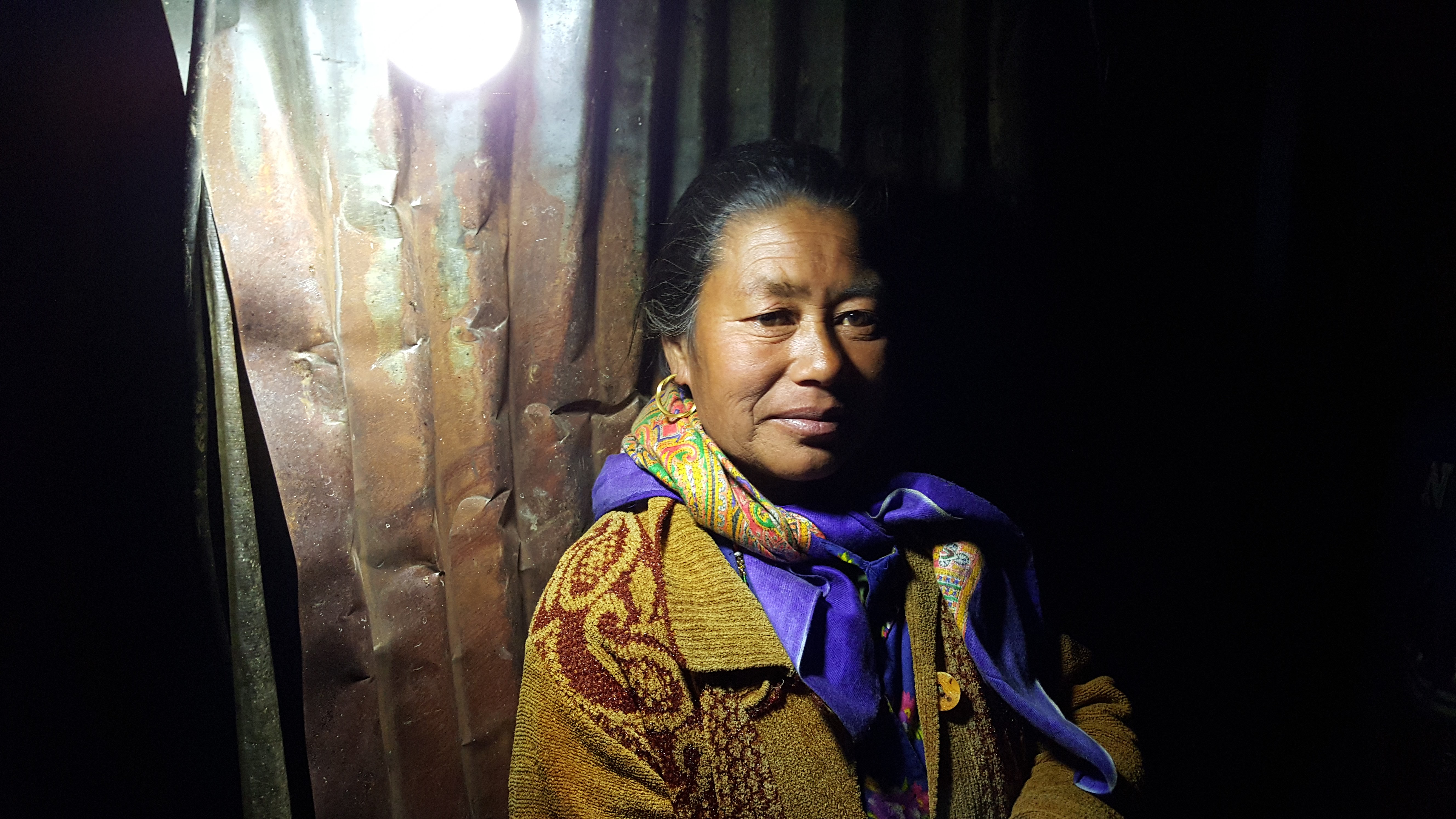 Basanti’s determination serves as a model and an inspiration to her fellow sales agents, her student customers, and her own young son.
Basanti’s determination serves as a model and an inspiration to her fellow sales agents, her student customers, and her own young son.
Basanti is one of several Empower Generation success stories of women who are embracing opportunities they have earned for themselves and creating the life they so deserve. GRID Alternatives and Empower Generation eagerly await the arrival of such opportunities for women in Dhapsung.
We hope you’ll join us in empowering women to power the world.
*****
The Power Up Nepal pilot project leverages GRID’s expertise with solar energy and sustainable international development to install a 16KW solar micro-grid in Dhapsung, Nepal. The project will power local businesses, the school, and all 40 homes in the community while providing jobs for women and supporting local entrepreneurism. The project will provide a model for successful micro-grid projects that can be replicated in other communities to meet Nepal’s long-term rural energy needs.
Learn more about the pilot project and find out how you can help build a brighter future for the people of Dhapsung.

